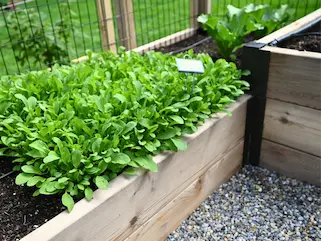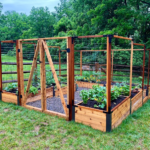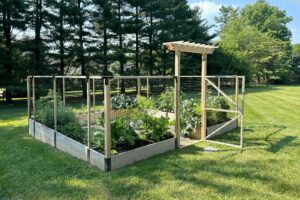
[et_pb_section fb_built=”1″ admin_label=”section” _builder_version=”4.27.0″ da_disable_devices=”off|off|off” global_colors_info=”{}” da_is_popup=”off” da_exit_intent=”off” da_has_close=”on” da_alt_close=”off” da_dark_close=”off” da_not_modal=”on” da_is_singular=”off” da_with_loader=”off” da_has_shadow=”on”][et_pb_row admin_label=”row” _builder_version=”4.16″ background_size=”initial” background_position=”top_left” background_repeat=”repeat” global_colors_info=”{}”][et_pb_column type=”4_4″ _builder_version=”4.16″ custom_padding=”|||” global_colors_info=”{}” custom_padding__hover=”|||”][et_pb_text _builder_version=”4.27.0″ _module_preset=”default” text_text_color=”#000000″ link_font=”|700|||on|||#000000|” link_text_color=”#000000″ header_2_line_height=”1.5em” header_2_font_size_tablet=”” header_2_font_size_phone=”23px” header_2_font_size_last_edited=”on|phone” global_colors_info=”{}”]
Introduction
With fall gardening season in full swing, it’s time to look ahead to preparing your garden for winter. It’s important to clear plant debris, amend the soil, and plant any crops that need to overwinter before hard frosts hit. All of these steps will ensure that you begin the spring planting season with a healthy and productive garden next year!
[/et_pb_text][et_pb_text _builder_version=”4.27.0″ _module_preset=”default” text_text_color=”#000000″ link_font=”|700|||on|||#000000|” link_text_color=”#000000″ header_2_line_height=”1.5em” header_2_font_size_tablet=”” header_2_font_size_phone=”23px” header_2_font_size_last_edited=”on|phone” global_colors_info=”{}”]
Garden Clean-Up: Preparing Beds for the Off-Season
It is essential to clear out dead or spent plants at the end of the season to prevent pests and diseases from overwintering in your soil. “Overwintering” simply means that they will continue to live throughout the winter, becoming a problem when you plant again in spring. Many plants from the same family are susceptible to the same pests and diseases, so even if you rotate crops they could still be affected. To clean up your fall garden, remove any dead plants and debris including leaves, vines, and fruit that could potentially harbor insects.
At the same time, remove or tidy up and trellis netting and supports. This could be as simple as moving tomato cages to a garden shed or garage, to protect the materials and reuse them next season. Our 2-D trellises are designed with easy-to-remove netting, so once your cucumbers, peas, or other vining crops are a tangled mess at the end of the season you can simply remove it and start fresh! This simple preparation will save you a lot of time and frustration next season.
[/et_pb_text][et_pb_text _builder_version=”4.27.0″ _module_preset=”default” text_text_color=”#000000″ link_font=”|700|||on|||#000000|” link_text_color=”#000000″ header_2_line_height=”1.5em” header_2_font_size_tablet=”” header_2_font_size_phone=”23px” header_2_font_size_last_edited=”on|phone” global_colors_info=”{}”]
Soil Care: Boosting Soil Health Before Winter
An annual vegetable garden is not a fully regenerative system. Every season, plants accumulate nutrients, vitamins and minerals from the soil, which we remove from the garden system for our own uses. Additionally, over time, soil compacts, pests and disease accumulates and overwinters in the soil and beneficial soil life like fungi diminishes. In order to maintain soil balance, both in texture, consistency and growing potential, annual gardens require soil care. We choose to break up soil care into two parts; end-of-season care & preseason care.
In fall “end-of-season care”, we add 2-3 inches of mushroom compost to the tops of raised beds. Compost is thick in texture and rich in nutrients, which adds back nutrients, vitamins, minerals to soil life in raised beds. It also suppresses any weed seeds in the soil and prevents them from germinating by reducing their exposure to the sun. Replenishing the soil volume also takes full advantage of raised beds’ height and soil structure.
[/et_pb_text][et_pb_image src=”https://backyard-eats.com/wp-content/uploads/2024/06/12-3.jpg” title_text=”Project1H_BYE” show_bottom_space=”off” _builder_version=”4.27.0″ _module_preset=”default” custom_margin=”20px||20px||true|false” global_colors_info=”{}”][/et_pb_image][et_pb_text _builder_version=”4.27.0″ _module_preset=”default” text_text_color=”#000000″ link_font=”|700|||on|||#000000|” link_text_color=”#000000″ header_2_line_height=”1.5em” header_2_font_size_tablet=”” header_2_font_size_phone=”23px” header_2_font_size_last_edited=”on|phone” global_colors_info=”{}”]
Alternatives to Fertilization During Fall
If you’re concerned about plant health without using fertilizer, here are some alternative ways to care for your fall garden during the growing season.
First, maintain consistent soil moisture to help plants establish roots and prevent pest and disease issues from over-watering. We recommend drip irrigation systems for consistent, even, and regular watering at the roots without adding extra nutrients to the soil. As an added benefit, irrigation timers can be adjusted to a less frequent schedule as fall temperatures cool. Mulching – useful for in-ground beds – also helps retain soil moisture. Additionally, mulch can maintain a comfortable soil temperature which will reduce plant stress and encourage growth.
[/et_pb_text][et_pb_text _builder_version=”4.27.0″ _module_preset=”default” text_text_color=”#000000″ link_font=”|700|||on|||#000000|” link_text_color=”#000000″ header_2_line_height=”1.5em” header_2_font_size_tablet=”” header_2_font_size_phone=”23px” header_2_font_size_last_edited=”on|phone” global_colors_info=”{}”]
Fall Planting: Thinking Ahead
Garlic and shallots can both be planted in late fall before the ground freezes with a hard frost. Unlike “quick fall” crops like baby greens or radishes, which we plant at the end of August, garlic and shallots are best planted in late November or early December in our climate. This gives the crops enough time to get established and begin to grow roots before the ground freezes, without expending all of their energy into producing fruit. Over winter, these crops will go dormant and emerge in spring, growing for several months until they’re ready to harvest in mid-summer. Because growing shallots and garlic takes longer than other crops, don’t miss your chance to plant them this fall and enjoy a delicious harvest next year!
[/et_pb_text][et_pb_image src=”https://backyard-eats.com/wp-content/uploads/2023/04/1-1.png” title_text=”1 (1)” show_bottom_space=”off” _builder_version=”4.27.0″ _module_preset=”default” custom_margin=”20px||20px||true|false” global_colors_info=”{}”][/et_pb_image][et_pb_text _builder_version=”4.27.0″ _module_preset=”default” text_text_color=”#000000″ link_font=”|700|||on|||#000000|” link_text_color=”#000000″ header_2_line_height=”1.5em” header_2_font_size_tablet=”” header_2_font_size_phone=”23px” header_2_font_size_last_edited=”on|phone” global_colors_info=”{}”]
Additional Winter Preparations for Raised Beds
Mulching is a valuable practice for insulating in-ground perennial beds and protecting the soil during the winter months. By applying a thick layer of organic mulch, such as straw, wood chips, or shredded leaves, you can help regulate soil temperature, retain moisture, and prevent the soil from freezing and thawing too rapidly, which can damage plant roots. Mulch also acts as a barrier against weeds, which may still attempt to sprout during warmer winter spells. As the mulch breaks down, it adds organic matter to the soil, improving its structure and fertility for the next growing season. Our team can recommend and apply the right type of mulch tailored to your garden’s specific needs, ensuring your soil remains healthy and well-protected through winter.
Frost protection is a crucial step in safeguarding your raised beds from the harsh winter weather. As temperatures drop, even the hardiest of plants can suffer if not properly shielded from frost. To protect your garden, consider using frost cloths, which are lightweight, breathable fabrics that can be draped over plants to trap heat and keep the cold at bay. For more substantial protection, low tunnels made from hoops and plastic sheeting can create a mini-greenhouse effect, preserving warmth and extending the growing season. Cold frames, which are essentially small, unheated greenhouses, offer even greater insulation and are perfect for overwintering certain crops or starting early spring seeds. By implementing these strategies, you can prevent frost damage, ensuring that your plants remain healthy and vigorous throughout the winter. Our team can assist with setting up these frost protection methods, ensuring your raised beds are well-prepared to face the chill.
[/et_pb_text][et_pb_text _builder_version=”4.27.0″ _module_preset=”default” text_text_color=”#000000″ link_font=”|700|||on|||#000000|” link_text_color=”#000000″ header_2_line_height=”1.5em” header_2_font_size_tablet=”” header_2_font_size_phone=”23px” header_2_font_size_last_edited=”on|phone” global_colors_info=”{}”]
Conclusion
We encourage you to take advantage of Backyard Eats’ professional services to make the garden winterization process seamless and effective. Whether it’s cleaning up spent plants, enriching your soil with compost, or planting garlic and shallots, our team is here to help. To get started, contact us today to schedule your fall and winter garden services. Don’t forget to subscribe to our newsletter for more gardening tips and advice, ensuring you’re always prepared to make the most of your edible garden.
[/et_pb_text][et_pb_button button_url=”@ET-DC@eyJkeW5hbWljIjp0cnVlLCJjb250ZW50IjoicG9zdF9saW5rX3VybF9wYWdlIiwic2V0dGluZ3MiOnsicG9zdF9pZCI6IjU4MjY0In19@” url_new_window=”on” button_text=”BOOK A CONSULTATION” button_alignment=”left” button_alignment_tablet=”left” button_alignment_phone=”left” button_alignment_last_edited=”on|tablet” disabled_on=”off|off|off” _builder_version=”4.27.0″ _dynamic_attributes=”button_url” _module_preset=”737bea5a-e063-4b24-af3f-21ce28f0bf38″ button_bg_color=”gcid-3b5ac83a-684c-4379-a559-60b2aa9e8157″ button_border_color=”gcid-3b5ac83a-684c-4379-a559-60b2aa9e8157″ button_letter_spacing=”1px” button_font=”Roboto|700||on|||||” z_index=”90″ custom_margin=”0px|0px|30px|0px|false|false” custom_margin_tablet=”0px|0px|0px|0px|false|false” custom_margin_phone=”0px|0px|0px|0px|false|false” custom_margin_last_edited=”on|desktop” locked=”off” global_colors_info=”{%22gcid-3b5ac83a-684c-4379-a559-60b2aa9e8157%22:%91%22button_border_color__hover%22,%22button_bg_color%22,%22button_border_color%22%93}” button_text_color__hover_enabled=”on|hover” button_text_color__hover=”#844B67″ button_bg_enable_color__hover=”on” button_border_color__hover=”#88667b” button_border_color__hover_enabled=”on|desktop”][/et_pb_button][/et_pb_column][/et_pb_row][/et_pb_section]






